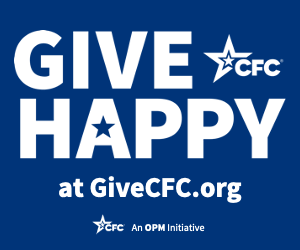Credit scores are an indicator of financial health for creditors, but that rating can also have career implications for military members and federal employees because of requirements for security clearances and background checks.
A borrower’s creditworthiness affects a budget’s bottom line too. Credit scores can reduce the amount of interest paid on credit accounts, make it easier to rent a house or apartment, eliminate the need for security deposits when setting up utilities, and keep insurance rates low.
Read more: New book provides teen credit lessons
If your credit score is not where you want it to be, there are simple steps that can improve it. Some of these steps may give you a faster increase in score, but the more complex parts take time and consistency. The three areas to focus on are lowering your credit balances, paying consistently on time, and building credit carefully.
“The best way to improve your credit score is to improve areas that weigh most in determining your score — payment history and credit utilization,” said Lacey Langford, AFC®, The Military Money Expert®.
Lowering credit balances
Paying down your debt balances is the fastest way to improve your credit score, according to Langford.
“The amount of money you owe, or your credit utilization rate, is 30% of your credit score. Carrying a lot of debt negatively impacts your credit.”
Experts recommend keeping your credit utilization rate below 30%. For example, if you have a total credit limit of $5,000 across three credit cards, you will want to have a total balance of no more than $1,500 on those credit cards. However, consumers with the highest credit scores typically have credit utilization rates in the single digits or pay their credit cards in full every month.
Pay on time
Your payment history makes up 35% of your total credit score. While it takes longer to build up an on-time payment history, this is an important piece of the equation.
“Late payments can hurt your credit. Making your payments in full and on time will be the best way to improve your score,” Langford said.
If you tend to miss paying bills due to busyness or disorganization, setting up an automatic payment for the minimum payment can ensure that at least the required amount is paid on-time each month. But be careful not to overdraw your checking account by doing so. You can set up an automatic payment on or quite close to payday to reduce that risk.
One quick fix is to ensure every credit account is current now. While you can’t erase late payments in the past, being up to date right now is a big step.
Build credit, but carefully
The last two recommendations may seem to conflict with each other, but if executing properly it will enhance a credit score: building credit and limiting new accounts.
A solid credit history requires a payment history, which can’t be built without having some credit. Additionally, a mix of credit types can help boost your score. This may mean you want to open a new account. But you want to be thoughtful and strategic about opening new accounts, opening only what you specifically need for a purpose and not opening new accounts too frequently.
You can build up your credit history using services like Experian Boost, which lets you report payments that aren’t usually reported like cell phone bills or utilities. Another option is SelfLender, which lets you take out a small loan and then automatically repay the loan on time every month. While these tools may help you increase your scores, be sure you understand what you’re paying and getting for these services.
Some of these steps can give you a rapid boost in your credit score, and some will take some time. But either way, you have the power to increase your credit score, which will give you more options as you go through your financial life.

















































